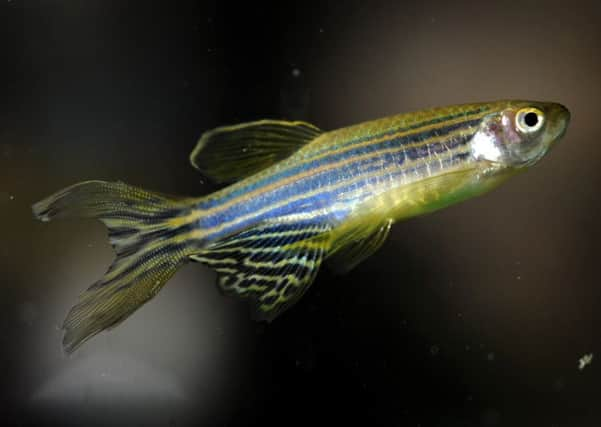Happiness hormone could help MND research, study finds


Edinburgh University scientists have discovered that serotonin can help zebrafish to recover from a spinal cord injury by sending signals to stem cells found in the spinal cord to boost the growth of new motor neurons – nerve cells that are vital for controlling muscle activity.
Damage to motor neurons in people is irreversible but the tropical fish can heal themselves by growing new motor neurons, said the study published in the journal Cell Reports.
Advertisement
Hide AdAdvertisement
Hide AdResearchers hope that better understanding the repair mechanisms in zebrafish could eventually lead to new therapies for people with neurodegenerative conditions.
Dr Thomas Becker, from Edinburgh University’s Centre for Neuroregeneration and the Euan MacDonald Centre for MND Research, said: “Understanding how zebrafish are able to repair damaged nerves could one day help us to trigger similar mechanisms in human stem cells.
“Our hope is that this may eventually lead to new treatments for conditions such as motor neuron disease, for which there is no cure.”
Damage to motor neurons in people – either as a result of neurodegeneration or spinal cord injury – is irreversible.
Motor neuron disease is an untreatable condition caused by the progressive loss of motor neurons that control movement, speech and breathing.
A spokesperson for MND Scotland said: “It is now known that motor neurone disease (MND) can arise when things go wrong in any one of several possible genes and their associated pathways, so it does not appear to be a single disease for which there will be a single cure.
“It seems more probable that any drugs that may be developed will tackle particular sub-types of the disease. Dr Becker’s work is an important step forward in that it adds to the body of knowledge about salvage and repair mechanisms at the cellular level, which might be of use in the management of diseases like the MNDs before the cells die.”